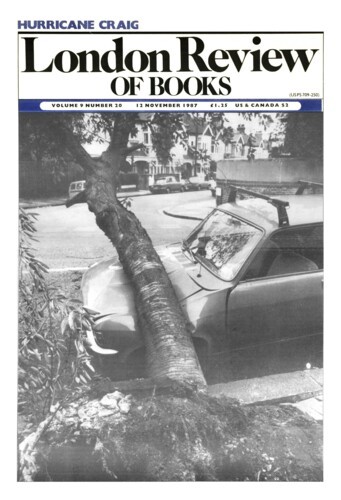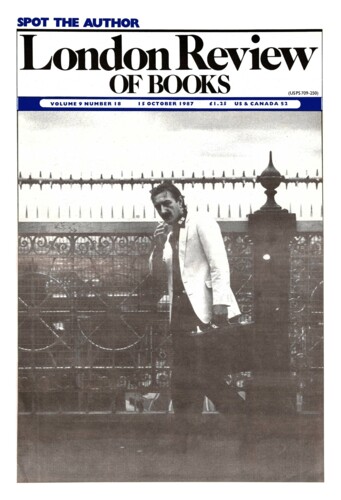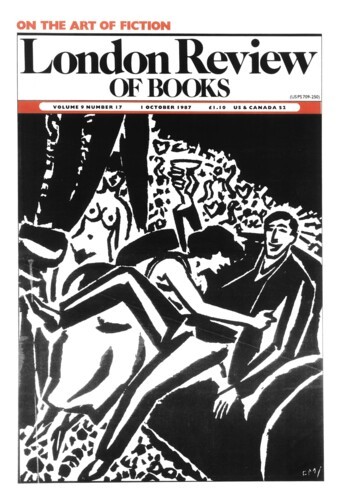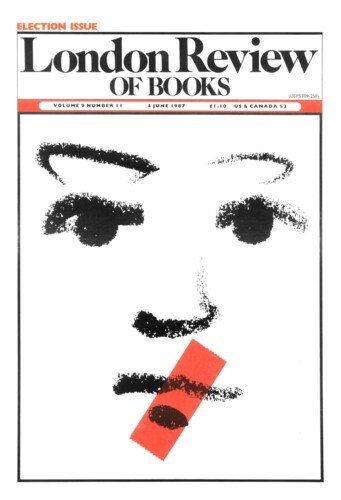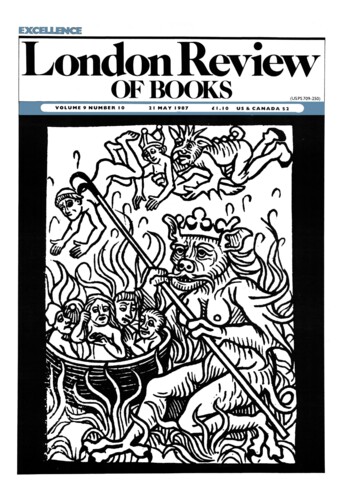French Air
John Sutherland, 12 November 1987
In his autobiographical papers, Surely you’re joking, Mr Feynman?, the Nobel Prize-winning physicist, Richard Feynman, describes being piqued by an article in Science about how well bloodhounds can smell. Feynman hates not being best, and so he took time off from inventing the atom bomb (he was working at Los Alamos) to run an experiment. He had his wife handle certain coke bottles in an empty six-pack while he was out of the room for a couple of minutes. Detection proved too easy: ‘As soon as you put the bottle near your face, you could smell it was dampish and warmer.’ So he had Mrs Feynman take down a book and replace it on the shelf:
